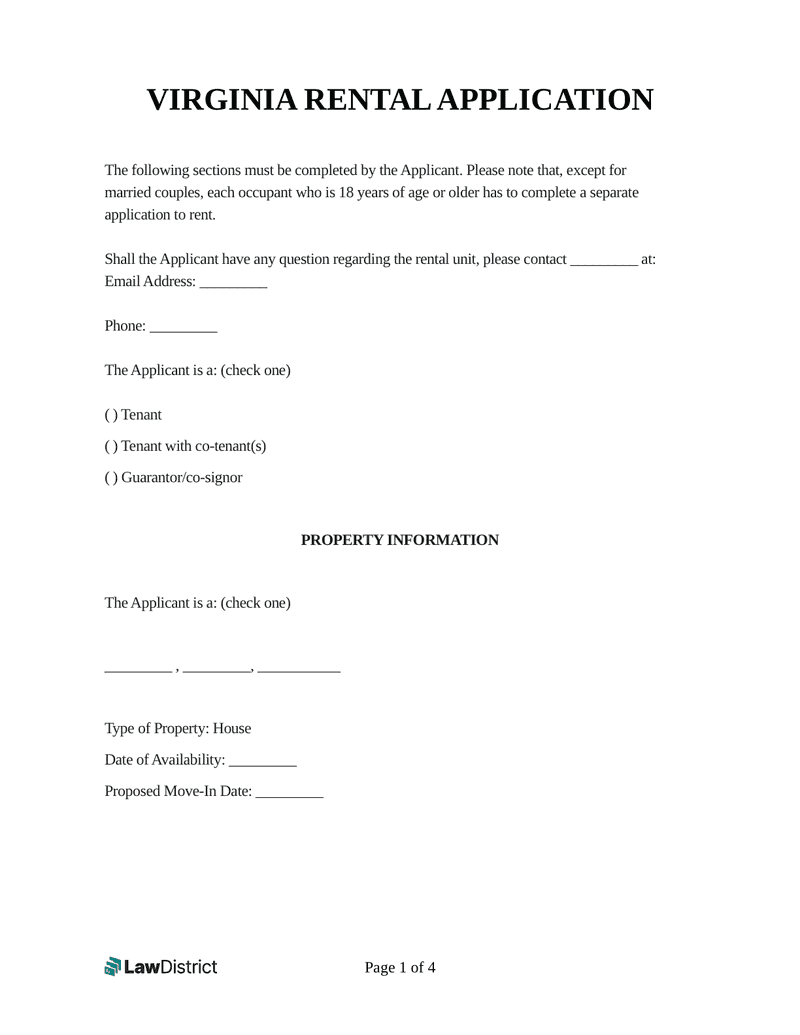Virginia has many rules and statutes regulating its housing market. These must be fully considered when preparing an application for rental properties in the state.
Application Fee
In Virginia, depending on the type of residence, there is a set application fee. No landlord can ask for more than $50 for any type of property (§ 55.1-1203).
Public housing on the other hand has a 32 dollar limit.
A landlord can make the application refundable or non-refundable.
Security Deposit
Landlords cannot charge more than 2 months’ rent for a security deposit under Virginia law (§ 55.1-1226).
Once the tenancy has ended, the landlord is required to return the security deposit if there are no damages that need to be paid for by the tenant.
Housing Discrimination Law
In Virginia, there is no specific state law relating to housing discrimination. However, the Fair Housing Act (FHA) is in place. The FHA states that it is illegal to discriminate based on the following characteristics:
- Race
- Color
- Nationality
- Religion
- Sex
- Familial status
- Disability
- Criminal history
As a consequence, you are not allowed to ask for any of these details on a VA Rental Application form nor to include them in the decision-making process.
Notice of Eligibility
Potential tenants must be informed about the screening criteria and reasons for denial or approval. To prove that these facts were shared, a signature of acknowledgment must be provided within the application or alongside it.
Consent Credit Check
Within Virginia, federal law is in effect that requires potential renters to provide written consent for a credit history check during the application process. This is known as the Federal Credit Reporting Act (FCRA).
